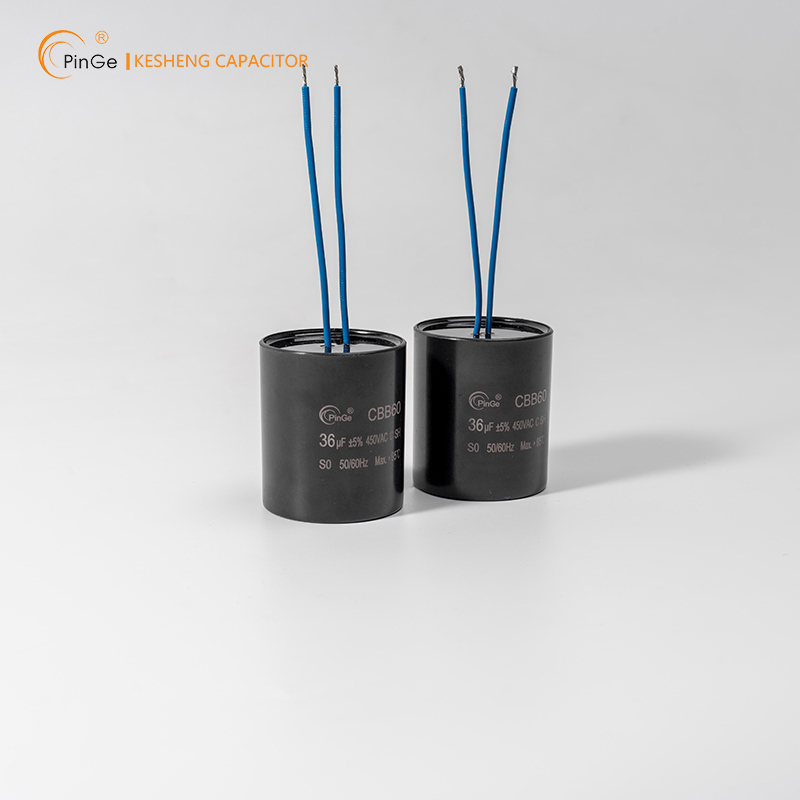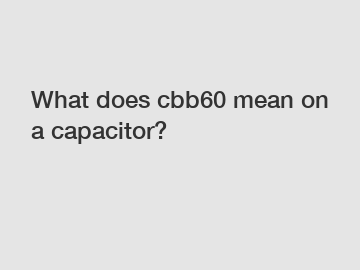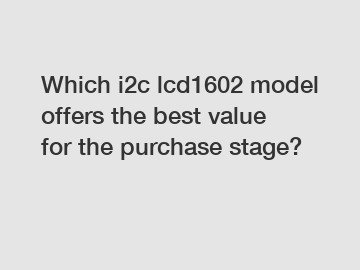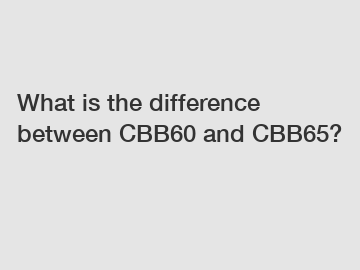What does an AC capacitor do?
Capacitors are passive electronic components that store and release electrical energy. They play an important role in a wide range of electrical applications, including power supplies, lighting systems, and motor circuits. In alternating current (AC) circuits, capacitors are particularly important for improving efficiency and performance. In this article, we will explore what AC capacitors do and how they are used in various applications.
Function of AC Capacitors
The primary function of Kesheng AC capacitors is to store and release electrical energy. When an AC voltage is applied to a capacitor, it charges up, storing electrical energy in its electric field. As the AC voltage changes direction, the capacitor discharges, releasing the stored energy back into the circuit. This process is repeated in each cycle of the AC waveform, resulting in a continuous exchange of energy between the capacitor and the circuit.

In AC circuits, capacitors are often used to correct power factor, reduce harmonics, and improve voltage regulation. Power factor is a measure of how effectively electrical power is being used. It is affected by the amount of reactive power in a circuit, which is the power consumed by inductive and capacitive loads. Reactive power can cause voltage fluctuations, current surges, and other issues that reduce efficiency and increase wear on equipment. By adding capacitors to an AC circuit, reactive power can be reduced, which improves power factor and reduces energy consumption.
Capacitors can also be used to reduce harmonics, which are unwanted signals that can distort waveforms and cause interference in electrical systems. Harmonics are often caused by non-linear loads, such as variable frequency drives, and can be mitigated by adding capacitors to the circuit. Capacitors can also improve voltage regulation by reducing voltage drop and stabilizing output voltage.
Applications of AC Capacitors
AC capacitors are used in a wide range of applications, from small electronic devices to large industrial equipment. Some common applications include:
Power Factor Correction: AC capacitors are often used in power factor correction systems to improve energy efficiency and reduce costs.
Motor Start and Run Capacitors: AC capacitors are used in motor circuits to provide the initial torque needed to start the motor and to maintain operation during normal use.
Lighting Ballasts: AC capacitors are used in lighting ballasts to regulate voltage and current in fluorescent and HID lighting systems.
Additional resources:Which 8X2 Character LCD Display Module offers the best performance for the purchase stage?
What does a flashing arrow board mean?
Boost Your Motor's Performance with CBB60 AC 250VAC 5 Cylindrical Motor Capacitor – What You Need to Know!
How do you install eye bolts?
What are Aluminum PG Clamp used for?
What is a marine screen?
How are PCBs assembled?
Power Electronics: AC capacitors are used in power electronics to store and discharge energy, filter unwanted signals, and regulate voltage and current.
Types of AC Capacitors
There are several types of AC capacitors, each with its own characteristics and applications. The most common types include:
Electrolytic Capacitors: Electrolytic capacitors are polarized capacitors that use an electrolyte to increase capacitance. They are often used in low-frequency applications, such as power supplies and audio equipment.
Ceramic Capacitors: Ceramic capacitors are non-polarized capacitors that use a ceramic material to increase capacitance. They are often used in high-frequency applications, such as filters and oscillators.
Film Capacitors: Film capacitors are non-polarized capacitors that use a thin film of metal or plastic to increase capacitance. They are often used in high-voltage applications, such as power electronics and lighting.
Tantalum Capacitors: Tantalum capacitors are polarized capacitors that use tantalum as the electrode material. They are often used in high-temperature and high-reliability applications, such as aerospace and military equipment.
In conclusion, AC capacitors play an important role in improving the efficiency, performance, and reliability of AC circuits. Understanding the different types of AC capacitors and their applications can help engineers and technicians design more efficient and reliable electrical systems.
What are the benefits of OLED display?
What is Dual In-line Package (DIP)?
What is the price of 1.8 TFT display?
What is an example of a variable message sign?
What kinds of backlights are common on LCDs?
Which PCB manufacturing environment offers the best cost-effective solutions?
What is the difference between thick and thin film resistors?
371
0
0
Related Articles
-
Which Factors Determine the Best Value for LED Traffic Signs and Displays?
Traffic management plays an instrumental role in ensuring road safety and efficiency.
260
0
0
-
246
0
0
-
238
0
0
-
Revolutionizing Automotive Design with Carbon Ink
In the ever-evolving automotive industry, innovation holds the key to progress.
228
0
0
-
What are the advantages of buying 10 best fixed resistors for B2B purposes?
What Are the Advantages of Buying 10 Best Fixed Resistors for B2B Purposes?
235
0
0
-
228
0
0
-
280
0
0
-
Efficient Wide Temperature Electricity Meters for Panels
Efficient Wide Temperature Electricity Meters for Panels: Enhancing Green Energy Monitoring.
242
0
0









Comments
All Comments (0)